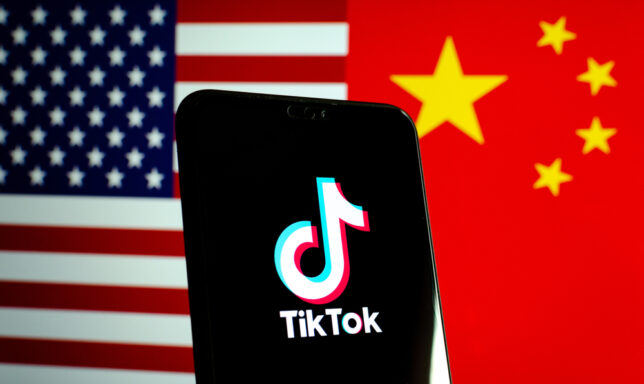Organization Trends
Tiktok Isn’t the Only Company Collecting Your Data
 Credit: Ascannio. License: TikTok.
Credit: Ascannio. License: TikTok.

At the time of writing 27 states and the executive branch of the U.S. government have banned TikTok on government devices. This policy will likely expand in the coming months as politicians across the political spectrum are openly considering a full ban of TikTok in the name of U.S. national security.
The argument is that TikTok, which is owned by a Chinese firm, could easily turn all of its collected user data over to the Chinese government, which could use the data for espionage. This raises the immediate question of whether a ban is necessary or is TikTok simply a scapegoat for a wider concern over data privacy that U.S. lawmakers have largely failed to address with TikTok’s U.S.-based competition.
Why the Ban?
In November 2o22, South Dakota became the first state to ban TikTok on state government devices. The governor’s executive order lays out the reasoning, stating:
The Chinese Communist Party (“CCP”) may attain this personal information because ByteDance is headquartered in China and Chinese National security laws compel companies operating in China to share their data with the government upon request.
This is a pervasive fear among government officials. The same executive order cites FBI Director Christopher Wray’s warning about TikTok’s influence.
This fear is not new. The U.S. military and the Transportation Security Administration banned TikTok on government devices before the South Dakota ban. And the Trump administration, citing national security concerns, attempted to force ByteDance to sell TikTok to U.S.-based firms. Adding to the concerns have been accusations that TikTok has suppressed information that it feels would offend the CCP and Xi Jinping.
Big Tech Response
TikTok’s success has drawn an interesting reaction from other tech companies. Seemingly responding to the competition from TikTok, other platforms have launched their own short-form video services. Meta-owned Instagram launched “Reels,” while YouTube has YouTube shorts. Elon Musk has hinted at reviving Vine, a similar service to TikTok that Twitter shut down in 2016.
Yet tech companies are often quiet or very vague about the possibility of a ban on TikTok Mark Zuckerburg is one exception, saying “I just think it’s [banning TikTok] a really bad long-term precedent. . .. It could very well have long-term consequences in other countries around the world.” Zuckerburg may be worried that a TikTok ban would attract greater scrutiny of Facebook in foreign countries where Facebook operates. A U.S. ban on TikTok in the U.S. for data collection could lead other countries to do the same to Facebook, which routinely engages in mass data harvesting abroad and domestically.
Is It Unique?
If the purpose behind banning TikTok is to better protect Americans’ data, then there is still a long way to go. While TikTok of course is collecting huge swaths of data that are easily accessible to the Chinese government, other tech firms are also collecting mounds of data. Data are a hot commodity bought and sold regularly, allowing some companies to value in the billions. China could just as easily go to this market to purchase data on whomever it pleases.
Furthermore, in an era when algorithms lead people into echo chambers and misinformation, even allowing U.S. companies to harvest this information and use it could arguably do just as much damage as any hypothetical risk linked to China. Data are very hard to keep secure even for the most tech savvy of people. Getting rid of a single app won’t solve the problem of data collection.
Moving Forward
TikTok is in many ways a symptom of a larger issue—another head on the hydra of data collection. TikTok has been the subject of many bans in the U.S. largely because its popularity and its foreign connections. While we certainly should safeguard American data from foreign governments, a TikTok ban won’t accomplish that. The only way to truly secure Americans’ data is to take a hard look at how the data are collected and used in the U.S., not just by banning apps and services we don’t like.
This is something the EU has been doing for some time with its General Data Protection Regulation (GDPR). GDPR has been effective in enabling Europeans to better control who collects their data and where their data go. While copying a law wholesale from the EU is imprudent and impractical, it is certainly worth a careful look to see what would and would not work in the U.S. to accomplish much of the same goals. Until American policymakers move beyond the game of “whac-an-app” and start addressing data privacy more seriously, the U.S. will just inevitably go through TikTok issue again the next time another foreign-made service or app becomes popular in the United States.


